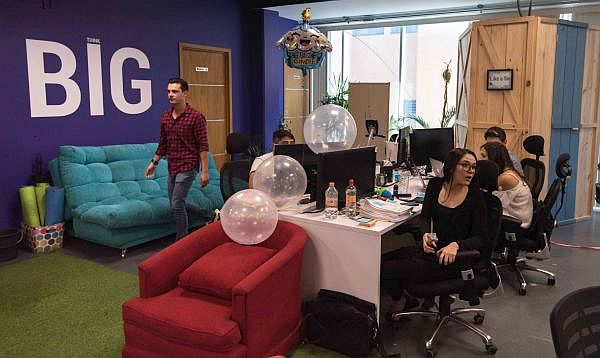Guadalajara, Jalisco, Mexico - "Guadalajara is closer to San Francisco than New York is," says Eliazar Parra, a 32-year-old freelance computer programmer who works for clients such as AT&T and Facebook, explaining the U.S. technology industry's growing interest in the city of 1.5 million in the western state of Jalisco.
After being deported from Silicon Valley in 2008 when her visa ran out, Ms. Parra says she has no intention of returning to the United States: "Life here is very good," she says. Like Parra, hundreds of young Mexican engineers, developers, mathematicians and computer programmers have found a thriving ecosystem in Guadalajara.
Over the last three decades, Jalisco has emerged as a center for research and development in highly specialized technologies, some of it carried out by large corporations, others by garage-based startups, and is now the country's leading technology node, attracting growing numbers of people unable or unwilling to try their luck in an increasingly anti-migration United States.
 |
"It is possible to divide a company: research and development can be located here, with the financial and sales division in Silicon Valley. We have to create hybrid models to allow companies to take advantage of Jalisco," he argues.
Over the last decade, Mexico's Silicon Valley has attracted 15 large corporations, mainly from the United States. There are also some 600 small and medium-sized companies, many of them start-ups that export 70% of their materials and content. Firms such as Oracle, HP, Motorola and IBM have found a second home in Jalisco. The state government says that companies are attracted by local talent and world-class infrastructure in Guadalajara and its environs.
The state government has worked with US companies to provide Guadalajara with the infrastructure it needs to attract companies like Tesla and Salesforce, both of which are currently thinking about locating part of their operations in the city. Similarly, universities are producing greater numbers of graduates with the skills needed to meet the demands of the marketplace.
A Mexican computer engineer can easily earn $6,000 USD a month, allowing for a very good standard of living. If growth rates continue, the state government wants to develop a technology corridor along the 160 kilometers from Guadalajara down to the coast at Puerto Vallarta.
Adalberto Flores returned to Guadalajara from Silicon Valley a couple of years ago after the company he worked for set up operations here. But the 33-year-old engineer decided to set up his own project, Kueski, a startup offering microloans via the internet. The company's open plan office, with kitchen and ping pong table, is staffed by financial experts, programmers and designers in their mid-twenties, most of them brought by Flores from California. The company has seen sevenfold growth in two years.
Kueski has overcome the doubts of US investors, who are now keen to invest in a business that is one of the first of its kind in Latin America.
"Silicon Valley investors are reluctant to put money into projects that are not based there, whether they are in New York, Texas, China, or Guadalajara, because startups require a lot of attention in their early phases," explains Flores.
"Talent is the new oil. An employee is not just an employee. One of the big differences with other industries is that there is a return on investment for the employee, not just the company," says Cindy Blanco, head of Startup Guadalajara, which helps technology entrepreneurs in the area.
Unlike other industries here, Mexico's technology sector does not depend on cheap labor, and the state government of Jalisco is now actively recruiting talent throughout California, attracting entrepreneurs and professionals south of the border to a state once best known for its Mariachi and Tequila.
Translated for ElPais.com by Nick Lyne.


